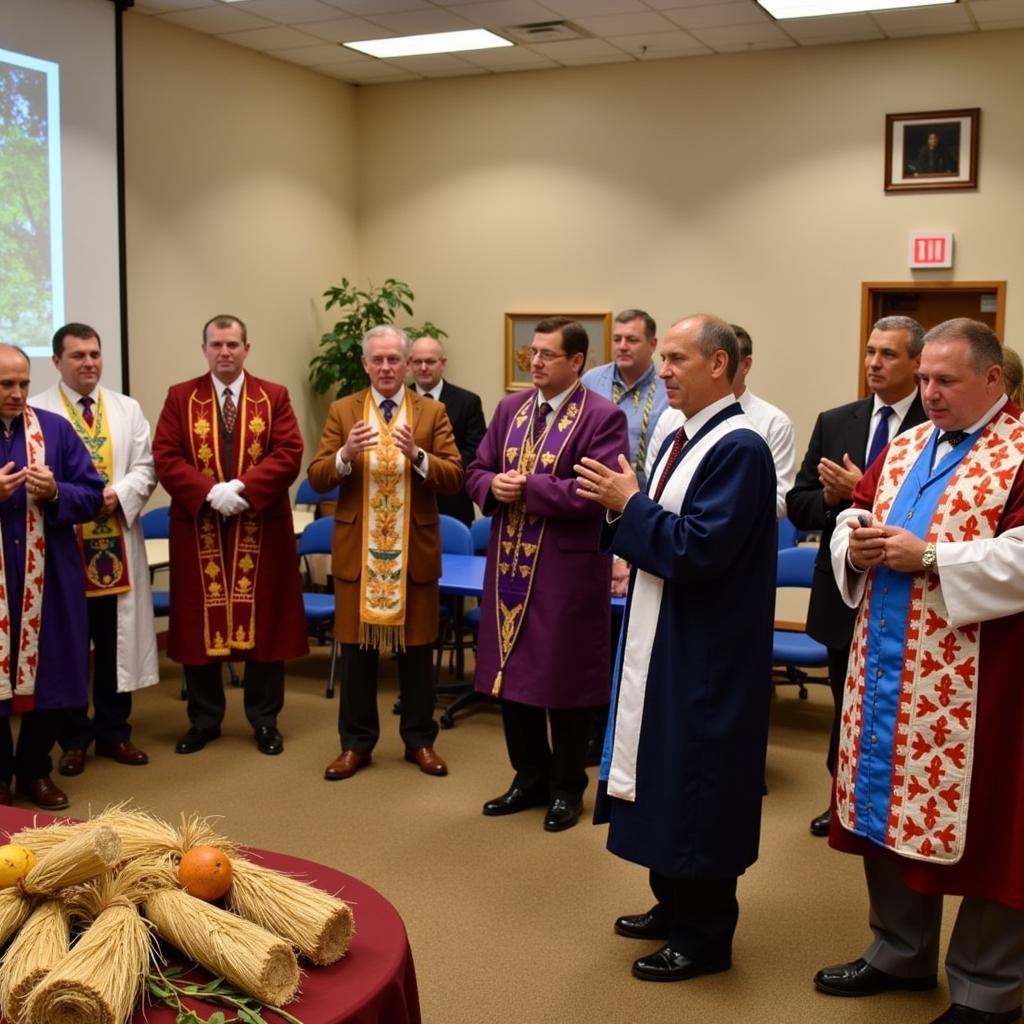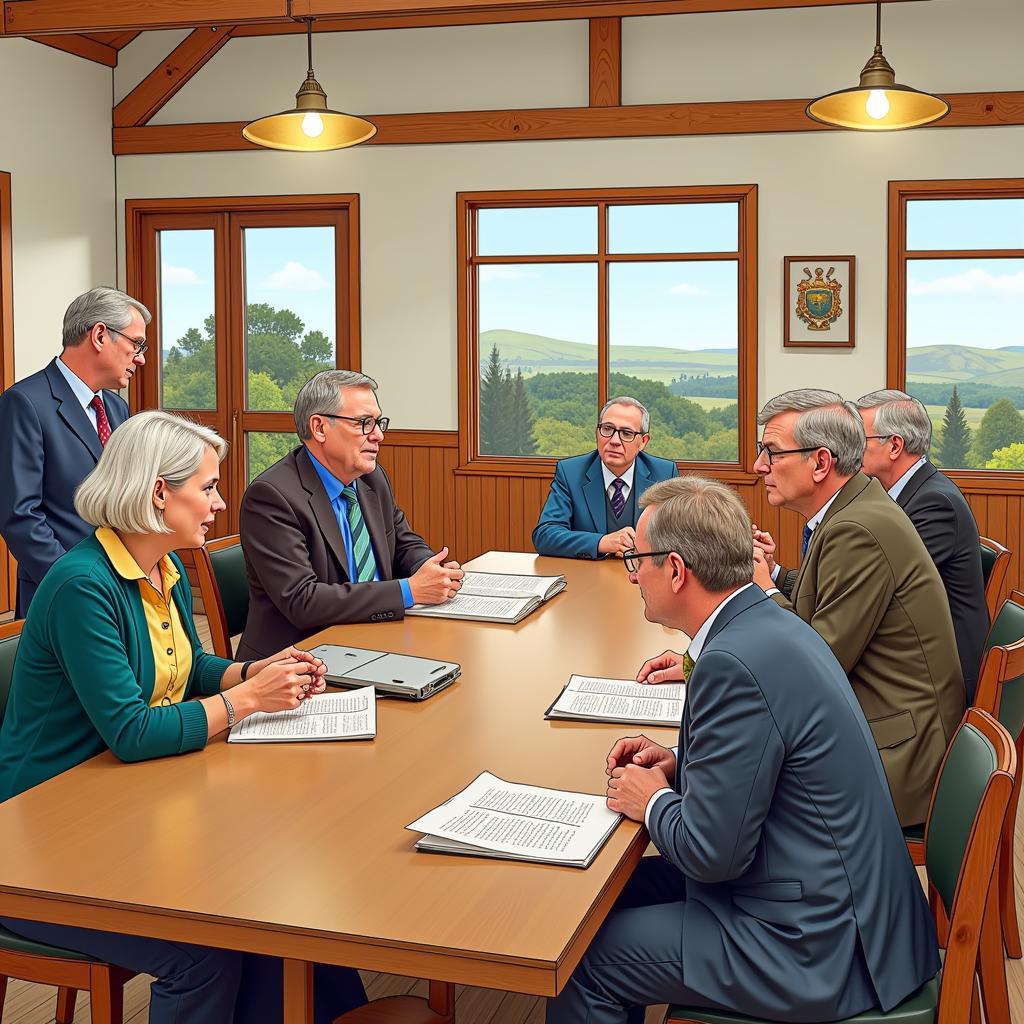The Grange Secret Society, often shrouded in mystery and speculation, has captivated the public imagination for centuries. From its agrarian roots to its modern-day presence, this article delves into the history, rituals, and impact of the Grange, separating fact from fiction and exploring its enduring relevance in today’s world.
A Deep Dive into the History of the Grange Secret Society
Founded in 1867 as the National Grange of the Patrons of Husbandry, the Grange emerged during a period of significant agricultural upheaval following the American Civil War. Oliver Hudson Kelley, a government clerk, envisioned an organization that would unite farmers, provide educational opportunities, and advocate for their interests. The Grange secret society quickly gained popularity, offering a sense of community and empowerment to rural communities grappling with economic hardship and social isolation. Its secretive nature, with rituals and degrees of membership, added an air of mystique and fostered a strong bond among its members.
The Grange’s emphasis on secrecy was not intended to exclude or create an elitist group. Rather, the rituals and symbols served as a unifying element, reinforcing the organization’s values of fraternity, hard work, and mutual support. These practices also served to protect members from potential backlash from powerful interests threatened by the Grange’s growing political influence.
The Grange Secret Society’s Rituals and Symbolism
What were the secrets of the Grange secret society? Contrary to popular misconceptions, the Grange’s rituals were largely symbolic, drawing upon agricultural imagery and themes of growth, harvest, and renewal. The degrees of membership, from the initial Laborer degree to the highest degree of Ceres, represented a journey of personal and spiritual development within the organization. These rituals aimed to instill a sense of purpose and belonging, fostering a strong network of support among members.
 Grange Ritual Ceremony
Grange Ritual Ceremony
The Grange’s Impact on American Society
The influence of the grange secret society extended beyond the farm. The Grange played a crucial role in advocating for agricultural education, rural free delivery of mail, and the regulation of railroads. It also championed social reforms, including women’s suffrage and temperance. The Grange’s legacy lies not only in its advocacy for farmers but also in its contribution to the broader social and political landscape of the United States.
The Grange Today: Continuing the Legacy
Is the Grange secret society still active today? Yes, the Grange continues to thrive in the 21st century, adapting to the changing needs of rural communities. While its focus remains on agriculture and rural life, the Grange has expanded its scope to address contemporary issues such as environmental sustainability, broadband access, and community development. It continues to serve as a vital voice for rural America, promoting education, fellowship, and civic engagement.
 Modern Grange Meeting
Modern Grange Meeting
Conclusion: The Grange Secret Society – A Force for Good
The Grange secret society, far from being a clandestine organization with nefarious intentions, has served as a powerful force for positive change in American society. From its humble beginnings as a support network for farmers to its enduring presence as a voice for rural communities, the Grange continues to embody the values of community, hard work, and mutual support. Its rich history and enduring legacy remind us of the importance of working together to build a better future.
FAQ
- What is the main purpose of the Grange? To support farmers and rural communities.
- Is the Grange a religious organization? No, the Grange is a non-sectarian organization.
- Can anyone join the Grange? Generally, yes, membership is open to those interested in supporting agriculture and rural life.
- What are the benefits of joining the Grange? Benefits include networking opportunities, educational resources, and community involvement.
- Does the Grange still practice its secret rituals? Yes, some rituals are still practiced, but their purpose is primarily symbolic.
- What is the Grange’s stance on political issues? The Grange advocates for policies that benefit rural communities and agriculture.
- How can I find a local Grange chapter? Information about local chapters can be found on the National Grange website.
For further support, please contact us at Phone Number: 02043854663, Email: [email protected] or visit us at Address: Khu 34, Bac Giang, 260000, Vietnam. We have a 24/7 customer service team.